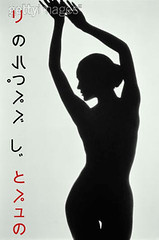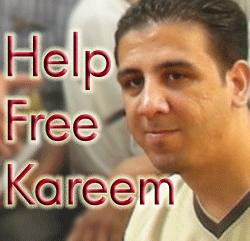Egypt under fire for censorship
Brian WhitakerThursday June 9, 2005
The Guardian (London), June 9, 2005, Guardian Foreign Pages, Pg. 17
The Egyptian government is stifling academic freedom in universities by censoring course books, preventing research into controversial issues and intimidating student activists, Human Rights Watch says in a report published today.
"The government's persistent violations of academic freedom have badly undermined Egypt's standing as the educational leader of the Arab world," said Joe Stork, deputy Middle East director of the Washington-based organisation.
Government repression has led to an environment of self-censorship with numerous "red lines", especially in politics, religion, and sex, that academics have become reluctant to cross, the report adds.
"One key role of a university is to provide a forum for high-level debate on controversial topics," Mr Stork said.
The 107-page report, Reading Between the Red Lines, also accuses the Egyptian police of restricting student activities outside the classroom.
"Plainclothes members of the state security forces roam campuses to stop spontaneous _expression, such as speeches or posters," it says. "The police also hire or coerce students into spying on each other."
Members of a student club, Horus, which has branches in the major universities and is linked to President Hosni Mubarak's National Democratic Party, are "notorious for intimidating their fellow students", the report continues.
Lecturers are prevented from using certain books in their courses - some of them classic texts - because of a law that requires all imported printed material to be reviewed by the censor's office.
The censorship is often arbitrary and books with "Egypt" or "love" in the title are especially likely to interest the censor. Banned items include the Penguin Map of the World which showed Egypt's border with Sudan as contested.
The censor told Human Rights Watch: "We have a very clear border ... The only maps we go by have a straight line."
University researchers who want to conduct surveys or large numbers of interviews must apply to the Central Agency for Public Mobilisation and Statistics (Capmas) for permission.
This particularly affects social sciences research, the report says. Sometimes Capmas never replies; sometimes it refuses permission without giving a reason, or changes the questions that may be asked.
In one case, the report says, two students at the American University of Cairo who interviewed people for a project without permission were arrested by police.
The problems are compounded in many areas of campus life by intimidation from Islamist militants which the government does little to prevent, the report adds.
Guardian Unlimited © Guardian Newspapers Limited 2005
Check out this detailed report at this link
http://hrw.org/reports/2005/egypt0605/
An Arabic summary of the same report can be read here
http://hrw.org/arabic/
The Guardian (London), June 9, 2005, Guardian Foreign Pages, Pg. 17
The Egyptian government is stifling academic freedom in universities by censoring course books, preventing research into controversial issues and intimidating student activists, Human Rights Watch says in a report published today.
"The government's persistent violations of academic freedom have badly undermined Egypt's standing as the educational leader of the Arab world," said Joe Stork, deputy Middle East director of the Washington-based organisation.
Government repression has led to an environment of self-censorship with numerous "red lines", especially in politics, religion, and sex, that academics have become reluctant to cross, the report adds.
"One key role of a university is to provide a forum for high-level debate on controversial topics," Mr Stork said.
The 107-page report, Reading Between the Red Lines, also accuses the Egyptian police of restricting student activities outside the classroom.
"Plainclothes members of the state security forces roam campuses to stop spontaneous _expression, such as speeches or posters," it says. "The police also hire or coerce students into spying on each other."
Members of a student club, Horus, which has branches in the major universities and is linked to President Hosni Mubarak's National Democratic Party, are "notorious for intimidating their fellow students", the report continues.
Lecturers are prevented from using certain books in their courses - some of them classic texts - because of a law that requires all imported printed material to be reviewed by the censor's office.
The censorship is often arbitrary and books with "Egypt" or "love" in the title are especially likely to interest the censor. Banned items include the Penguin Map of the World which showed Egypt's border with Sudan as contested.
The censor told Human Rights Watch: "We have a very clear border ... The only maps we go by have a straight line."
University researchers who want to conduct surveys or large numbers of interviews must apply to the Central Agency for Public Mobilisation and Statistics (Capmas) for permission.
This particularly affects social sciences research, the report says. Sometimes Capmas never replies; sometimes it refuses permission without giving a reason, or changes the questions that may be asked.
In one case, the report says, two students at the American University of Cairo who interviewed people for a project without permission were arrested by police.
The problems are compounded in many areas of campus life by intimidation from Islamist militants which the government does little to prevent, the report adds.
Guardian Unlimited © Guardian Newspapers Limited 2005
Check out this detailed report at this link
http://hrw.org/reports/2005/egypt0605/
An Arabic summary of the same report can be read here
http://hrw.org/arabic/








3 Comments:
its true that governmental sensorship is awfull, and its everywhere in life, but what sucks me more is the society surveillance of every aspect of life, i feel that egyptians are watching each others all the time, and choosing what others should do or doesn't, that's why we don't have too much opposition to government actions, as we do it ourselves, i think the mentality needs a lot of changes
Set up a protest against terrorism tomorrow in the streets of Cairo. Do it. Call everyone you know, join together, link up this Egyptian blogosphere and to the streets.
Karim Elsahy
تسلم ايديك على الموضوع
اخبار اليوم-اخبار مصر
إرسال تعليق
<< Home